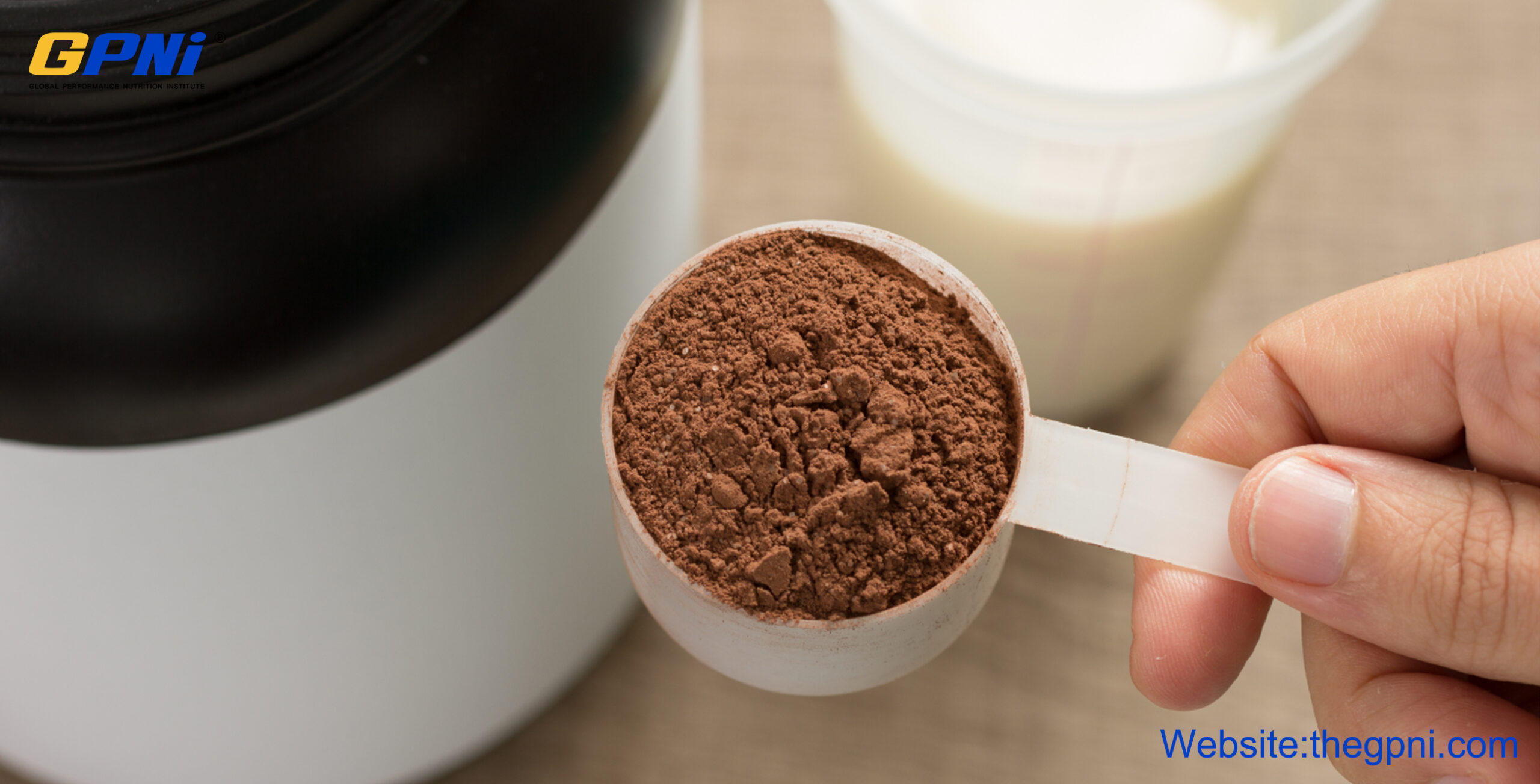The debate around ultra-processed foods (UPFs) in sports nutrition is becoming increasingly prominent. As athletes strive for peak performance, their nutrition plays a crucial role. But with the rise of ultra-processed foods, such as protein bars and sports drinks that contain preservatives and additives, many sports people are also worried about the impact of ultra-processed foods on them. Growing concerns regarding the health implications of such foods have sparked a shift towards more natural and minimally processed alternatives.
So, we delve into the emerging trend of returning to whole foods and how this may impact athlete performance and overall health.
What Is Ultra-Processed Foods?
Ultra-processed foods are industrial formulations typically composed of five or more ingredients, often including substances not commonly used in culinary preparations. These ingredients may include preservatives, emulsifiers, sweeteners, and artificial flavors. According to the NOVA classification system, foods are grouped into four categories based on the extent and purpose of their processing. Ultra-processed foods, in this system, constitute the fourth group, marked by high levels of processing and low nutritional quality.
Ultra-processed foods are distinct from minimally processed foods or even processed culinary ingredients, which are closer to their natural state and have undergone basic processes such as drying, grinding, or freezing.

Ultra-Processed Foods in Sports Nutrition
Common ultra-processed foods, such as potato chips, ice cream, hamburgers, and processed meats, contain too much fat, sugar, or sodium, are high in energy, and contain little protein and dietary fiber. But there are also many foods labeled “healthy” that are actually ultra-processed foods, especially for people who exercise, and may be consumed regularly. We can tell by the ingredients.
Protein Bars and Energy Bars: These often contain a mix of protein isolates, artificial sweeteners, emulsifiers, and preservatives.
Ready-to-Drink Protein Shakes: These shakes have various artificial flavors, sweeteners, and stabilizers to enhance taste, texture, and shelf life.
Commercial Sports Drinks: Many commercial sports drinks contain added sugars, artificial colors, flavors, and preservatives.
Meal Replacement Powders: These products are often include a range of processed ingredients, such as protein isolates, artificial sweeteners, and preservatives.
Pre-packaged Sports Meals: These ready-to-eat meals are often highly processed and contain a variety of additives to extend shelf life and enhance flavor.
Pre-mixed powders: Pre-mixed powders used to supplement electrolytes, amino acids, or other nutrients are also often highly processed and contain a variety of artificial additives.
While these products can be effective for specific sports nutrition goals, they should be consumed mindfully as part of a balanced diet. The degree of processing can impact the overall nutritional quality and potential health effects of these products.
Is Dietary Supplement Ultra-Processed Foods?
However, dietary supplements such as protein powders and creatine are not superfoods. Dietary supplements are processed foods, and their processing is mainly to extract and concentrate nutrients rather than complex processing based on already processed foods, so they do not meet the definition of ultra-processed foods.
Dietary supplements are products intended to supplement the diet and provide nutrients, such as vitamins, minerals, amino acids, or enzymes, which may need to be consumed in sufficient quantities. While some supplements may contain processed ingredients, they are not classified in the same category as ultra-processed foods because their primary purpose is nutritional rather than to be consumed as food. However, let’s be careful that some supplement formulations may contain processed or artificial ingredients, so it’s essential to evaluate the product’s quality.

The Dangers of Ultra-Processed Foods
Ultra-processed foods have been linked to a range of adverse health outcomes in the general population. Research shows that regular consumption of UPFs is associated with increased risks of obesity, type 2 diabetes, cardiovascular diseases, and certain types of cancer. This is largely due to the high content of refined sugars, unhealthy fats, artificial additives, and low nutritional density found in many of these foods. Moreover, UPFs often displace whole foods in the diet, leading to nutrient deficiencies and poor overall dietary quality.
The excessive intake of ultra-processed foods can lead to metabolic dysfunction, chronic inflammation, and a higher likelihood of developing lifestyle-related diseases. These issues are compounded by the low fiber content and the presence of synthetic ingredients in UPFs, which can disturb the gut microbiome and impair digestive health.
While athletes often have higher energy requirements due to their physical activity levels, they are not immune to the potential negative effects of ultra-processed foods. One of the primary concerns for athletes is the impact of UPFs on gut health. Research indicates that high consumption of these foods can lead to gut dysbiosis—an imbalance in the gut microbiota—which in turn can increase intestinal permeability (known as “leaky gut”). This condition is particularly problematic for endurance athletes, as it can contribute to gastrointestinal distress, inflammation, and impaired nutrient absorption during prolonged exercise. Gut issues, such as cramping, bloating, and diarrhea, are common among endurance athletes, and ultra-processed sports foods may exacerbate these problems.
Athletes require a broad spectrum of vitamins, minerals, and antioxidants to support immune function, muscle repair, and energy production. Diets dominated by ultra-processed sports foods may fail to provide these essential nutrients, potentially compromising both performance and overall health. A balanced approach that includes whole foods for daily nutrition and recovery, alongside strategic use of ultra-processed sports products, may be the best strategy for sustaining both peak performance and long-term health.
The Move Towards Natural and Minimally Processed Foods
In response to these concerns, there has been a noticeable shift towards more natural and minimally processed alternatives in sports nutrition. Whole foods such as fruits, vegetables, whole grains, nuts, and seeds are increasingly favored for their superior nutrient profiles and lower risk of negative health outcomes. Many athletes are turning to homemade energy bars, natural smoothies, and whole-food snacks to fuel their training sessions.
This trend is supported by the growing evidence that diets rich in whole foods contribute to better overall health, including improved cardiovascular function, enhanced immune response, and better body composition. These benefits are particularly important for athletes, who require optimal health to sustain their performance.
Combine Natural Foods with Ultra-Processed Foods
The question remains: how does the shift from ultra-processed to whole foods impact athletic performance? On one hand, ultra-processed foods in sports nutrition are designed to provide quick, easily digestible energy during strenuous exercise, which can be advantageous in certain scenarios, such as endurance events or high-intensity training. However, whole foods offer superior nutrient profiles, contributing to long-term health, better recovery, and enhanced overall performance. To strike a balance between the benefits of ultra-processed foods and the health advantages of natural foods, athletes can employ a combination strategy.

Pre-Workout Nutrition:
- Natural Foods: Before a workout, focus on consuming natural, minimally processed foods that provide sustained energy and important nutrients. Examples include oatmeal with fruits, sweet potatoes, or a banana with nut butter. These options supply slow-releasing carbohydrates, essential fats, and fiber for stable energy levels.
- Ultra-Processed Foods: When time is limited or if an intense session is ahead, a small amount of ultra-processed food, such as a carbohydrate-rich energy bar, can be beneficial for a quick energy boost. These foods provide immediate fuel in the form of simple carbohydrates or caffeine, which can enhance performance during short, high-intensity workouts.
During Workout Nutrition:
- Ultra-Processed Foods: During prolonged or high-intensity exercise, especially in endurance events like marathons or triathlons, athletes often need quick-digesting sources of energy that are easy to carry and consume. Sports drinks, or carbohydrate chews are ultra-processed options designed for rapid absorption and to prevent fatigue.
- Natural Foods: For less intense or shorter workouts, athletes can rely on natural, whole-food alternatives. For example, dried fruits such as dates, figs, or raisins can provide fast-absorbing carbohydrates without the added sugars and artificial ingredients found in processed gels. Coconut water can be a natural alternative to sports drinks, providing electrolytes without added chemicals.
Post-Workout Recovery:
- Natural Foods: After a workout, recovery nutrition is crucial for muscle repair and glycogen replenishment. Whole foods like lean proteins (chicken, fish, or plant-based proteins like tofu and lentils), complex carbohydrates (brown rice, quinoa), and healthy fats (avocados, nuts) should form the foundation of post-exercise meals. These foods not only promote recovery but also provide a full spectrum of vitamins, minerals, and antioxidants that processed foods often lack.
- Ultra-Processed Foods: For convenience immediately after a workout, when access to whole foods may be limited, athletes can use ultra-processed recovery drinks or protein bars. These products are designed to provide a fast influx of protein and carbohydrates to kick-start muscle repair and replenishment. However, athletes should aim to follow up with a more balanced whole-food meal as soon as possible.
Snacking and Fueling Between Meals:
- Natural Foods: For regular snacking, incorporating whole foods such as fruits, nuts, seeds, and whole grains is beneficial. These foods offer sustained energy, fiber, and essential nutrients, helping to keep blood sugar stable and hunger in check between meals.
- Ultra-Processed Foods: On occasions where natural foods are unavailable or during travel, ultra-processed snacks like protein bars, meal replacement shakes, or pre-packaged trail mixes can be used for convenience. Choosing products with fewer ingredients and those that are higher in protein and lower in added sugars is recommended.

Race Day Strategy:
- Natural Foods: In the days leading up to a race or competition, athletes can emphasize whole foods to maximize glycogen stores, support hydration, and reduce inflammation. Foods like whole grains, lean proteins, and antioxidant-rich vegetables and fruits help build a solid nutritional foundation.
- Ultra-Processed Foods: On the day of the event, ultra-processed sports nutrition products, such as electrolyte drinks, energy bar, and carbohydrate chews, can be strategically used to maintain energy levels and prevent cramping during competition. These products are often essential for performance in long-duration events where quick energy and electrolyte replenishment are critical.
Balancing Intake for Long-Term Health:
- Natural Foods: For everyday meals, focusing on whole, minimally processed foods is key to supporting long-term health, reducing inflammation, and ensuring optimal nutrient intake. Athletes should prioritize fresh vegetables, fruits, whole grains, lean proteins, and healthy fats as the foundation of their diet.
- Ultra-Processed Foods: Ultra-processed foods should be viewed as tools for specific circumstances rather than staples of the diet. By limiting their intake to times when they are truly necessary—such as during or immediately after intense exercise—athletes can minimize potential negative health effects while still benefiting from their convenience and performance-enhancing properties.
Key Takeaways
Timing is crucial when it comes to combining natural foods with ultra-processed products. Ultra-processed foods can provide a performance edge in the right context, particularly during exercise or when whole foods are impractical.
Balance and moderation are essential. Athletes should focus on consuming whole foods most of the time, using ultra-processed options strategically to support specific performance needs without allowing them to dominate their diet.
Quality matters. When selecting ultra-processed sports products, athletes should choose those with fewer artificial additives, lower sugar content, and higher-quality ingredients to minimize the potential health risks associated with heavily processed foods.
By adopting a balanced strategy that incorporates both natural and ultra-processed foods at the right times, athletes can optimize their performance while safeguarding their long-term health.
References
Elizabeth, L., Machado, P., Zinöcker, M., Baker, P., & Lawrence, M. (2020). Ultra-processed foods and health outcomes: A narrative review. Nutrients, 12(7), 1955. https://doi.org/10.3390/nu12071955
Askari, M., Heshmati, J., Shahinfar, H., Tripathi, N., & Daneshzad, E. (2020). Ultra-processed food and the risk of overweight and obesity: A systematic review and meta-analysis of observational studies. International Journal of Obesity, 44(10), 2080-2091. https://doi.org/10.1038/s41366-020-00650-z
Chen, X., Zhang, Z., Yang, H., Qiu, P., Wang, H., & Wang, F. (2020). Consumption of ultra-processed foods and health outcomes: A systematic review of epidemiological studies. Nutrition Journal, 19(1), 86. https://doi.org/10.1186/s12937-020-00604-1
Baska, R. S., Moses, F. M., Graeber, G., & Kearney, G. (1990). Gastrointestinal bleeding during an ultramarathon. Digestive Diseases and Sciences, 35, 276-279. https://doi.org/10.1007/BF01536777
Blaut, M., & Clavel, T. (2007). Metabolic diversity of the intestinal microbiota: Implications for health and disease. Journal of Nutrition, 137(3), 751S-755S. https://doi.org/10.1093/jn/137.3.751S







